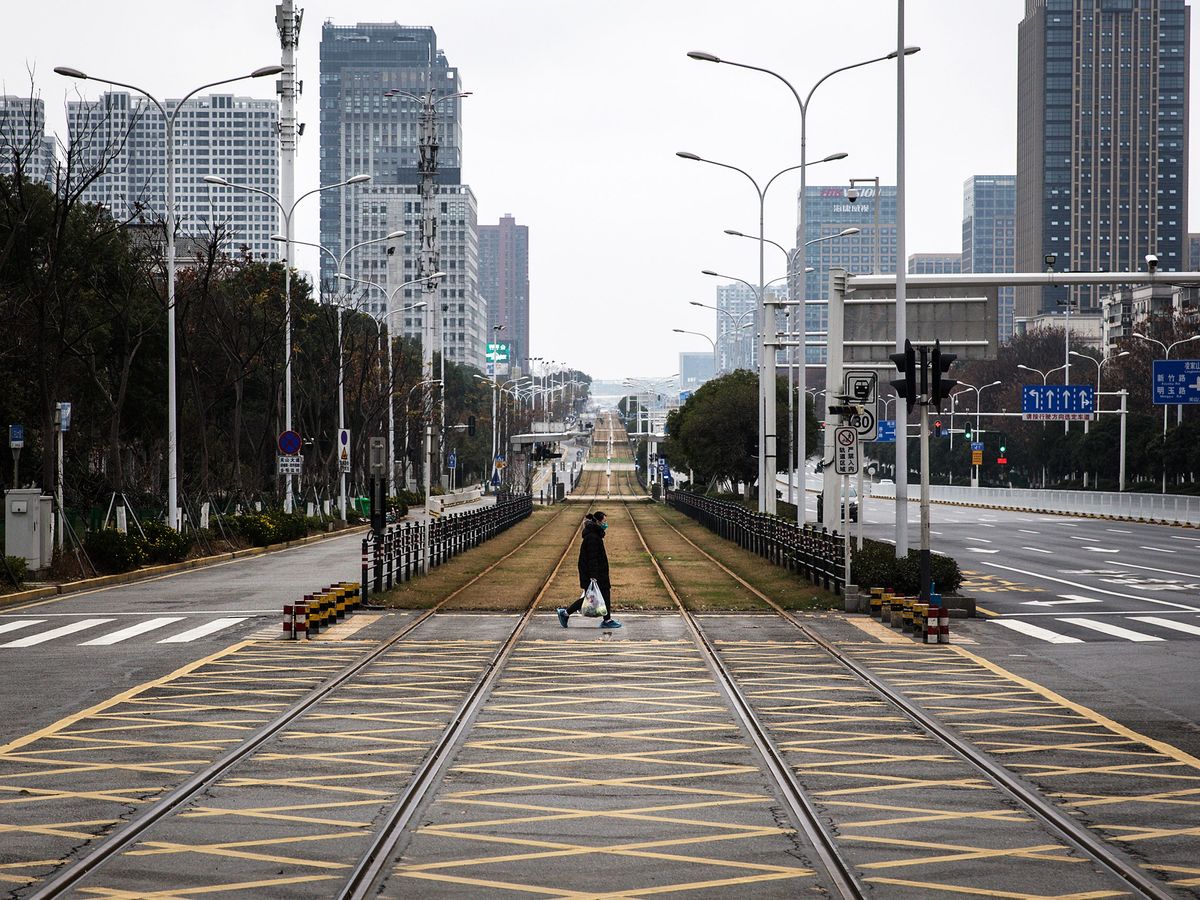These companies are helping during the COVID-19 crisis

A few minutes every morning is all you need.
Stay up to date on the world's Headlines and Human Stories. It's fun, it's factual, it's fluff-free.
The coronavirus crisis has rippled throughout society, negatively influencing the global economy. People are encouraged to quarantine and many businesses have limited their operations or shut down altogether.
With this crisis, we’ve seen a record increase in joblessness as more than 16 million people in the US have filed for unemployment in the past few weeks.
Facing this uncertain stretch ahead, we have asked the question: how are companies using their power and platforms to give back and support the economic infrastructure?
Supporting the workforce
Certain companies received backlash for their policies and responses to the crisis. Several were criticized for cutting jobs and slashing employee incomes while yet maintaining their investor payouts via dividends and buybacks.
William Lazonick, a University of Massachusetts corporate governance expert, told Reuters: “If companies are paying dividends and doing buybacks, they do not have to lay off workers.”
The expectation that companies should be more charitable during the COVID-19 crisis is apparent in the negative response to Whole Foods Market’s implication that employees donate accrued paid time off to colleagues, a program that had been in place since before the pandemic was on the radar.
A closer examination of the history of corporate generosity to social causes might argue that capitalism and charitability have a complicated and sometimes antithetical relationship. But, right now it’s not a bad idea for companies to adopt policies that invest in their own workforce and stem the economic fallout. They could potentially benefit from the resulting positive marketing and consumer loyalty along the way.
One major development regarding COVID-19 has been an increase in remote work options. Companies like Twitter and Square have transitioned their entire staff to work from home. Corporations like Capital One, Hubspot, Dow and many others have implemented work-from-home policies for as many employees as feasible.
Though some businesses have shut down or furloughed staff, some, like Lululemon and Patagonia, continue to pay employees. Others like Apple, Uber, and Walmart have expanded paid sick leave and other benefits for their workers. Companies like Campbell’s, Whole Foods, and Workday have increased pay for staff, with a focus on frontline workers. Additionally, many CEOs and company leaders have suspended their salary or taken a pay cut to support their workforce.
Where some industries are facing massive job cuts, layoffs and reduced operations, others have seen an uptick. Companies like Instacart, Amazon, CVS and Walmart are creating jobs and hiring in large numbers. Unsurprisingly, pizza chains like Domino’s, Pizza Hut and Papa John’s have geared up to hire more than 50,000 employees to meet increased demand during this period of rampant isolation and quarantine.
Supporting the consumer
People experiencing job loss or financial hardship breathed a sigh of relief upon receiving word from insurance, utility or credit companies with updated relief policies for consumers struggling to pay their bills.
Insurance companies like Geico and Progressive distributed credits to consumers while also pledging to temporarily suspend policy cancellations due to nonpayment.
Major lenders like Goldman Sachs and American Express are letting consumers skip payments, The New York Times reported, and student borrowers will be happy to learn that most student loan payments and interest have been temporarily suspended without penalty. Internet providers have banded together to “keep Americans connected” by waiving late fees and disconnections. Support for struggling homeowners came when Fannie Mae and Freddie Mac suspended home foreclosures and evictions, along with the Federal Housing Finance Agency, which announced relief for mortgage payments during the crisis.
Many companies have also enacted new policies to reduce the risk of transmission of COVID-19. A number of food delivery services have adopted new “contact-free” delivery policies to support the recommendation of social distancing. Grocers like Target and Dollar General created “senior-only” shopping hours to allow at-risk seniors to shop separately and avoid the crowds.
Supporting the community
Notably generous and charitable efforts have come from big companies seeking to support first responders, essential employees, healthcare efforts and heavily-impacted communities. Brian Chesky, co-founder of Airbnb, announced on Twitter that they will help provide housing for 100,000 COVID-19 responders around the world. Some other companies, like Xerox, are providing ventilators in a time where they are difficult to find.
Corporate donations and fundraisers popped up across the landscape from companies like Anheuser-Busch, Colgate-Palmolive and Cisco, which committed a $225 million contribution to aid the global response. Facebook generated millions in grants to help small businesses that are struggling.
Companies have also reallocated their resources to support necessary healthcare. Companies like Hanes and New Balance have repurposed their production lines to make face masks for healthcare workers. Companies like Dow and Louis Vuitton have started producing hand sanitizers amid a widespread shortage.
Perhaps there is a snowball effect with these companies in their public response to COVID-19. Regardless of the reasons behind it, certainly, there must be a measure of relief from the general public, which makes up the companies’ consumer base. Surely, the way a company has responded to the crisis will be in our minds long after things have returned to some sense of normalcy.
[article_ad]




Comments ()